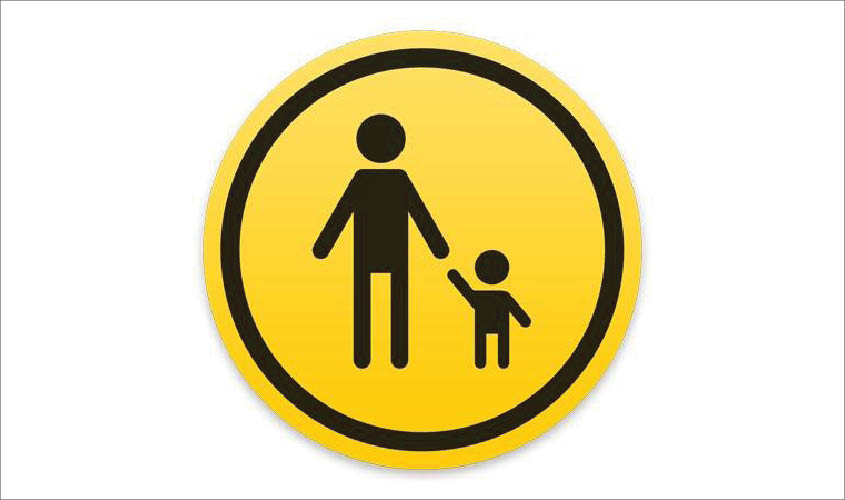Mothers and children do not need cold-blooded child rights careerists.
In the last decade, we in India have introduced a range of laws for children that are based on a dysfunctional Western model of so-called “child protection”. I hope that Smriti Irani, the new Minister for Women and Child Development, as an outsider to the child rights field, will be able to bring in new thinking. There is an urgent need for a change of direction in our child protection laws.
In the Western system, child protection authorities are empowered to remove children from their parents for the weakest of reasons. Such nebulous things as “emotional harm” are grounds for child removal. Conditions of poverty are described as “neglect”, and children are taken away.
The children taken by the state are placed with foster carers and refused contact with their birth families. Foster carers receive hefty remuneration for taking in children. Another arrangement for taken children is “forced adoption”. This is an extremely cruel system where children are given away in adoption against the objections of the birth parents.
Child welfare agencies are shielded from public scrutiny by strict confidentiality laws. These laws were meant to protect the privacy of children but are in practice covering up for overbearing and incompetent child protection officials. Their decisions to remove children from parents are rubber-stamped by judges as they are considered as “experts”. Public-private partnerships in child protection have created huge commercial interests in fostering and adoption. Corporations in the field show share valuations running into millions of pounds.
India has adopted this system egged on by child rights professionals and NGOs. Under the Juvenile Justice (Care and Protection of Children) Act, 2015 and the Model Guidelines for Foster Care, 2016, child protection officials and NGOs have been given wide powers to remove children from their parents. Tribunals called “Child Welfare Committees” can declare parents as “unfit” and take the children into state custody. These children can be kept in foster care or orphanages till majority.
The foster care guidelines state that the consent of biological parents for foster placement need only be taken where “relevant and necessary”. They also say that biological families should not be told where a foster family or foster child lives “to prevent negative impact on foster family (e.g. may extort money from foster family)”. The bias against the biological family is abundantly clear.
Like the Western child protection laws, the Indian foster care rules also allow child removal not just in cases of abuse, but for the much lower and subjective standards of parental “fitness”, and “verbal” and “emotional” abuse.
Child rights as a field was developed entirely in the West. Whether they are in India or abroad, child rights professionals and organisations are trained in the Western system. They are unable to think beyond the Western child protection model, despite its failings.
The reason for this intellectual stupefaction is twofold. There are those who are by their training so ideologised in Western anti-family thinking that they dismiss out-of-hand critics of child protection as die-hard conservatives who are not willing to accept that families can go wrong. For others, endorsing the Western line on child protection is a matter of their careers. In the Western-sponsored ecosystem of child rights, it is not possible to survive except by mouthing the Western position. This is a matter of not just of funding, but of recognition—of invitations to seminars, consultancies with international child organisations, and, for civil servants in the Ministry of Women and Child Development, plum positions with child foundations (in turn modelled on the Western system) after retirement. Most of the Ministers for Women and Child Development have so far all been closely associated with this ecosystem.
So there is hope for new thinking in the appointment of a relative outsider like Smriti Irani as the new Minister for Women and Child Development. The voice of ordinary women as mothers has been hijacked in the child development field by career child protection advocates. Child rights is a towering example of how the intellectuals and “experts” can fail us by getting carried away with ideas and ignoring ground realities.
We mothers and children do not need cold-blooded child rights careerists. We need a woman as Minister for Women and Child Development who knows what it is to be a mother, a woman who is not embarrassed to bring her experience and knowledge of children to the job, and a woman who is open to seeing where families can go wrong, while also being willing to see the value of our South Asian family system in giving children security, stability and, let us not forget what the experts always ignore, abundant affection. As a mother it is my hope that Smriti Irani will take aim at the black clouds of Western child protection that are gathered above us in India.
Suranya Aiyar is a New Delhi-based lawyer and mother. She runs the website www.saveyourchildren.in, critiquing the role of governments and NGOs in child policy.

